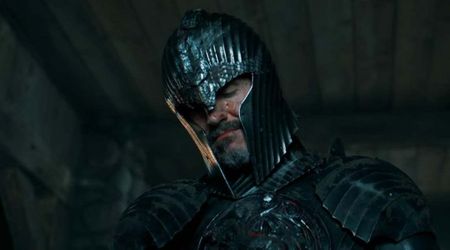'Star Trek: Discovery' Season 3: Why did everyone assume the Burn happened simultaneously in the first place?

Spoilers for 'Star Trek: Discovery' Season 3 Episode 7 'Unification III'
There's a key plot hole in Michael Burnham's (Sonequa Martin-Green) investigation into the Burn, one that 'Discovery' has shown no indication of explaining. One of the biggest reasons why it was so hard to understand the source of the Burn is that the universal explosion of dilithium happened, by all reports, simultaneously across the universe. A simultaneous happening of ANY sort is said to be impossible, and Starfleet has had its best minds trying to figure out how that happened for over a century. However, Michael Burnham has found some key evidence that proves that the Burn did not, in fact, happen all at once — so why did everyone assume it did, in the first place?
Burnham discovers delays in dilithium explosions by recovering black boxes from warp-capable Starfleet ships — meaning that for well over a hundred years, no one has collected any hard data on the timing of the universal dilithium explosion. This then means that, when the Burn happened, all at approximately the same time, everyone in the universe merely assumed that it was a simultaneous explosion. Everyone made the colossal, logical leap that instead of some sort of signal, or chain reaction being responsible for the burn, it all somehow triggered at once.
This means that people assumed the impossible happened, and have spent a century trying to figure it out. There is no explanation for why they would have made that assumption in the first place — that assumption has needlessly made things harder on everyone. As smart as Michael Burnham is, she has no special insight or knowledge into science — if anything, she's centuries behind the most relevant scientific minds. Yet in all that time, not one person ever thought to actually ask if their initial impossible assumption was somehow incorrect.
'Discovery' backtracks its "simultaneous explosion" description even more, as the Ni'Var reveal that they believe they were responsible for the Burn, and that they have scientific data that proves the Burn had a point of origin. Starfleet was aware of the Ni'Var's belief — it, in fact, led to them breaking off from the Federation in the first place — and yet somehow they still clung to the belief that the Burn was simultaneous and spontaneous.
Unless someone was wilfully suppressing all information related to the Burn and tyrannically drowning out certain lines of questioning, it makes no sense why Starfleet officers — or scientists of any affiliation, really — made the assumption in the first place, or why none of them have questioned it since. No explanation seems forthcoming, however, so it seems likely it will fall to future episodes, books, or even comics to fill in the gap.
The next episode of 'Star Trek: Discovery' airs December 3, on CBS All Access.










